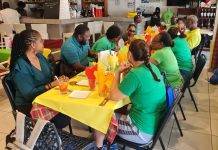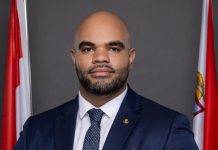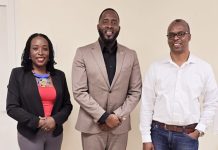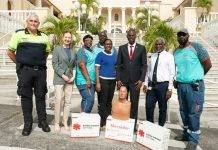WILLEMSTAD, Curacao – The Social Economic Council (SER) of Curaçao will chair the International Association of Economic and Social Councils and Similar Institutions (AICESIS) for the 2023-2025 term. This has been agreed upon by the board of AICESIS during it’s ordinary session, which was held in Belgrade, capital of the Republic of Serbia, on December 2, 2022. The Board meeting brought together 14 members from all continents, represented physically, online or by mandate, as well as observers from Hungary, Peru and the International Labour Organization (ILO).
During the Board meeting, the SER of Curaçao, which is also Board member, was represented on technical level by the Director/Secretary General Mr. Raul Henriquez and Mrs. Miloushka Sboui-Racamy, senior advisor in charge of international affairs. The Board of AICESIS was informed, that after consultations with the Economic and Social Councils of the Latin American and Caribbean region, who are members of this prestigious international association, is has been agreed that the candidacy of the SER of Curaçao is accordingly proposed to chair AICESIS for the 2023-2025 term. Mr. Henriquez read the official letter and afterwards handed it to the Secretary General of the association.
According to article 8, sub paragraph 1, in conjunction with article 7, sub paragraph 3, of the Articles of Association of AICESIS, the presidency of the association rotates every two years between the continents. Currently the region Asia, Eurasia and the Middle East chairs AICESIS. This position will be handled over to the SER of Curaçao, representing Latin America and the Caribbean, during the next General Assembly which is scheduled for October 26-27, 2023, in Moscow.
The SER of Curaçao is since 2017 member of the Board of AICESIS and also Vice Secretary General of the association for the Latin American and Caribbean region. The main objective of the association, that has close ties with the ILO, the Economic and Social Council of the United Nations (UN-ECOSOC) and the European Economic and Social Committee (EESC) is to encourage and promote dialogue and exchanges between its members and, at a wider level, to encourage dialogue between economic and social partners in the world.
AICESIS, which has its registered office in the Hague in the Netherlands, encourages the creation of economic and social councils in states which do yet possess them and contributes, through the exchange of work and organization of meetings to the prosperity and economic development of peoples and to the emergence, in mutual respect of peace, of democratic civil societies in accordance with the principles of the United Nations and the Universal Declaration of Human Rights, as well as the fundamental principles and rights at work endorsed by all members of the ILO.
AICESIS has more than 70 members, which are economic and social councils and similar social dialogue institutions distributed in a balanced way between the different continents. 18% of the members are Councils from Latin America and the Caribbean, 36% from Europe, 30% from Africa and 16% from Asia/Eurasia and the Middle East. The association has ordinary members, observers and associate members, such as international organizations and institutions. AICESIS was founded in July 1999 in Port Louis, Mauritius. Its headquarters are in Brussels, Belgium.
In concrete terms, the presidency will entail that the SER of Curaçao, a small island development state in the Caribbean, for a period of two years, starting at the end of October 2023, will give direction to AICESIS and facilitate the association’s cooperation with its partners and networks by further encouraging and promoting the concept of institutionalized forms of tripartite social dialogue through the exchange of good practices and the organization of international meetings and events in close cooperation with its partners at the international, and national levels, with intergovernmental organizations, relevant UN and EU institutions, national bodies that lead social dialogue, and civil society organizations.






























